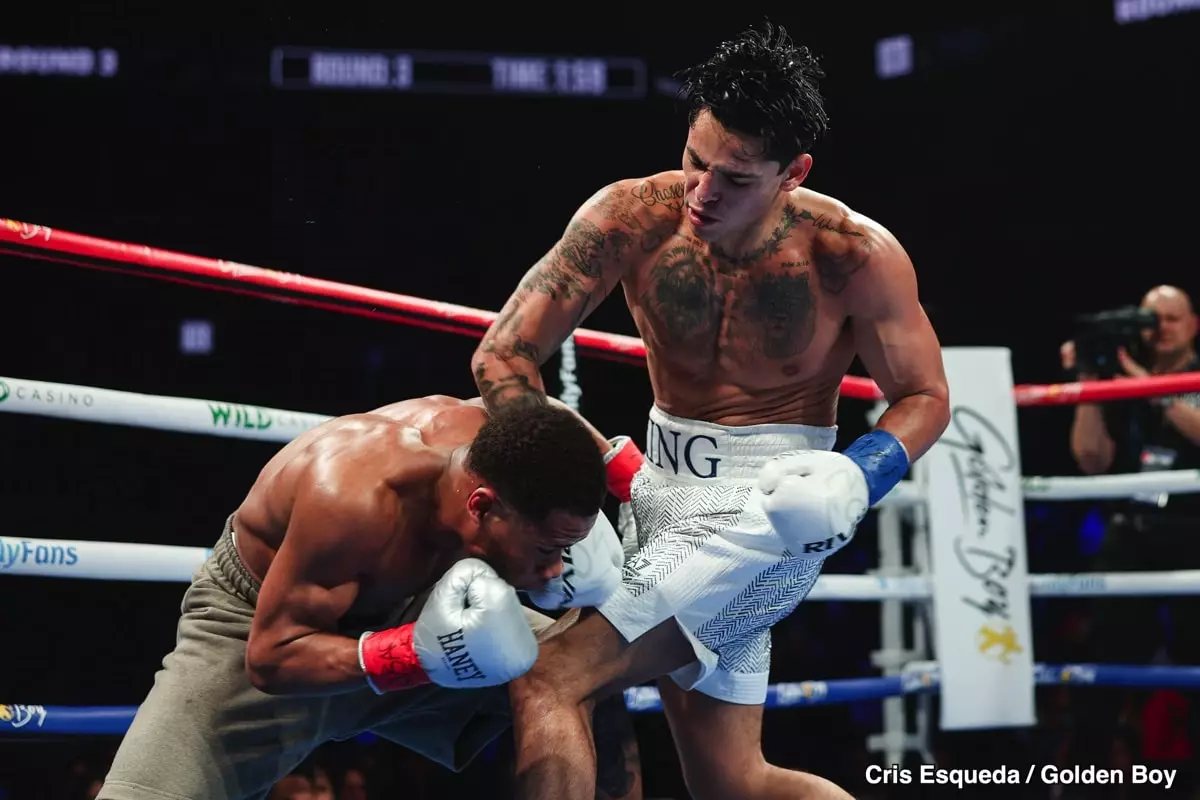The recent bout between Ryan Garcia and Devin Haney has sent shockwaves through the boxing community, not only for its outcome but also for the ripples it has created in the narrative surrounding both fighters. After Garcia’s impressive victory on April 20th, he took to social media to provide an exhaustive analysis of why Haney lost. Surprisingly, Garcia rejected the notion that performance-enhancing drugs played any part in the defeat, instead attributing Haney’s shortcomings to a failure to evade Garcia’s powerful left hook. This assertion sheds light on Garcia’s confidence while also emphasizing Haney’s vulnerabilities as a fighter.
Garcia’s claims that he hurt Haney early in the fight highlight a crucial aspect of boxing: the ability to take control right from the first punch. His conviction that he provided a “wake-up call” to Haney suggests that he believes the fight’s outcome could have been avoided with proper preparation and mindset from Haney’s corner. Notably, Garcia’s belief that Bill Haney—Devin’s father and trainer—remains in denial about the loss hints at deeper psychological issues affecting their camp. The inability to recognize flaws can lead to stagnation and future defeats, making self-awareness essential for any competitor.
Adding another layer to the aftermath, Oscar De La Hoya, promoter for Garcia, recently responded to criticisms stemming from Bill Haney’s dissatisfaction regarding the fight’s financial outcomes. De La Hoya firmly pointed out the disappointing pay-per-view sales—approximately 300,000 buys—which starkly contrasts with the higher expectations set prior to the match. This figure not only exposes flaws in Haney’s marketability but also raises questions about the strategic decisions made by Golden Boy Promotions.
With Haney’s previous fight against Regis Prograis reportedly drawing a mere 50,000 buys, it begs the question: why pair Garcia with a fighter who lacks the drawing power necessary for significant market success? The boxing industry often thrives on star power and fan engagement. Recognizing that Haney has not been able to captivate audiences offers insights into future matchmaking decisions. If Garcia and De La Hoya are considering a rematch with Haney, they must confront the harsh reality that without substantial fan interest, financial gains will likely be minimal.
In the wake of his loss, Haney has remained largely inactive, which poses a substantial risk to his career trajectory. The unfortunate timing of this break could lead to a decrease in public interest and relevance, jeopardizing his place within the competitive landscape of boxing. Conversely, Garcia’s decisive victory has positioned him as a formidable contender in the sport, which raises the stakes for his future matchups.
While some may speculate about a rematch, both fighters must assess their positions honestly. For Haney, addressing the mental and physical aspects of training is necessary for reclaiming lost ground. For Garcia, maintaining momentum and seeking out high-profile fights will be crucial. The boxing world is dynamic, and both fighters need to be strategic and adaptable to thrive in an environment where fan engagement and perception can make or break their careers.

